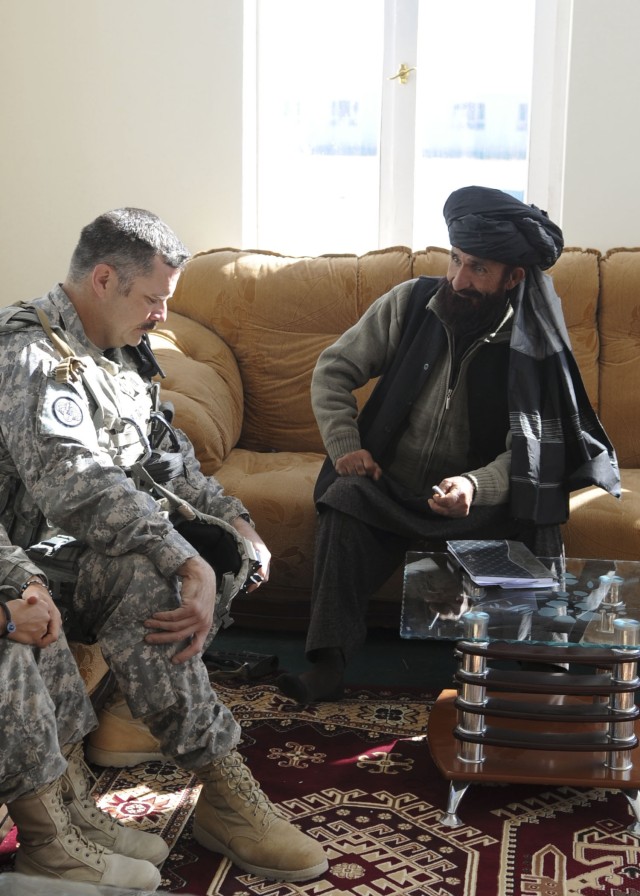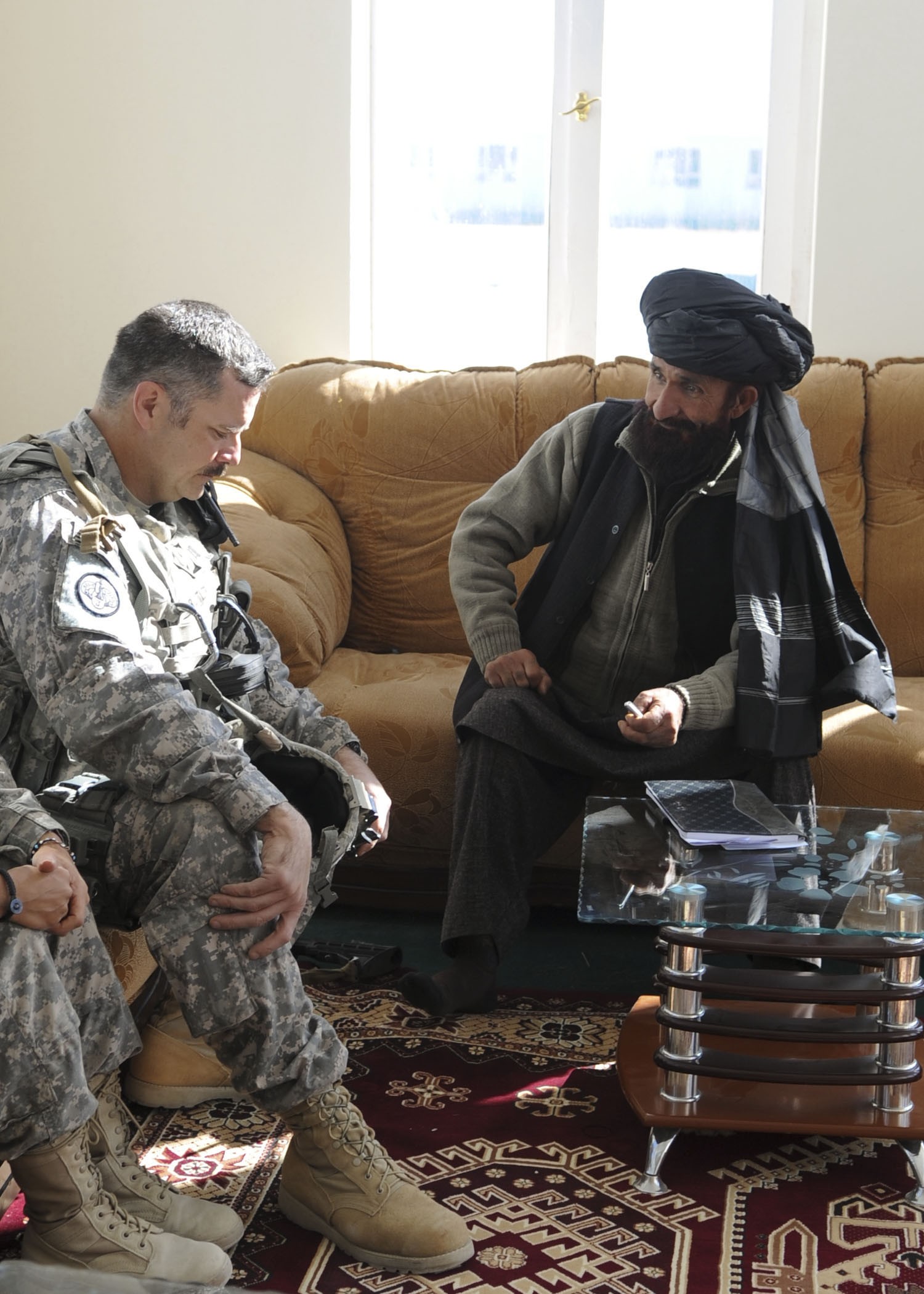
Paktika Provincial Reconstruction Team civil affairs visited schools and conducted a key leader engagement in the Orgun District here, Nov. 24.
When it comes to the PRT's mission to assist the Government of the Islamic Republic of Afghanistan with providing stability for the people, these missions are critical.
Without face-to-face interaction during key leader engagements, PRT leaders would lack information needed to make educated decisions about the capabilities and needs of the population.
During the Balish School KLE, team members met with Mohammed Aziz, Orgun's deputy line minister for education, and Said Momen, the Balish School principal.
According to Momen there are 65 teachers at the school. Grades 1 to 6 are taught in the morning, while grades 7 to 12 are taught in the afternoon. The greatest issue facing Balish School is the trouble teachers have getting their paychecks, he said.
"We are short on staff," Momen explained. "We don't have enough teachers. We have been waiting for the past eight months, so we are hoping to get paid soon."
Momen said he is doing the paperwork right now so he can take it to Sharana and receive the teachers' salaries.
The school is also without electricity, he explained, because they don't have a generator and the ministry can't afford to keep the school open in the winter. Although the school is closed in the winter, Momen said the government provides security to guard the building.
Following the Balish School, the PRT visited the Orgun Center for Educational Excellence, or as the Afghans call it, the Orgun Teacher Vocational Institute. Aziz spoke with the PRT civil affairs team and described the status of the center as well as his concerns.
U.S. Army Capt. Mike Butler, PRT Paktika civil affairs team leader and Chicago native, explained that in the past, a lot of workers have been contracted in Pakistan.
"We want more people from here to be doing the jobs," Butler said.
"It would be great to use people from the area but we really need your help," Aziz replied.
Aminullah, CEE vice principal, explained that the vocational school has six classrooms and eight teachers. The nearly 160 students attend classes in history, geography, chemistry, science, biology, geometry and Pashto, the most prominent language spoken by Afghans in Paktika.
According to Aminullah, the center offers students both five-year and two-year programs depending on how much schooling they have already completed.
"Most of the students become teachers when they graduate," Aminullah said. "They come here after graduating from high school. We have up to the 14th grade here, so it is like a community college," he said.
Aziz mentioned that he hopes to turn the institute into a university eventually.
Before leaving the school, the CAT spoke with a group of about 35 students who board at the school. They expressed their happiness with the instruction, but explained that they have to purchase their own books.
Considering the information gathered from both of these school visits, Butler explained what his next steps will be.
"I will address the CEE because they are the main effort," he said. "We need the Ministry of Education to budget for ongoing maintenance of the facility including hiring an electrician.
"Once they take these steps, we will work with the CEE director to expand the curriculum, to include construction trades like carpentry, masonry and electrical. There are critical shortages of these skills in East Paktika," he added. "This has hindered reconstruction and development efforts."
The overarching challenge, according to Butler, is the proper maintenance of these facilities, a responsibility that lies with the Government of the Islamic Republic of Afghanistan.

Social Sharing